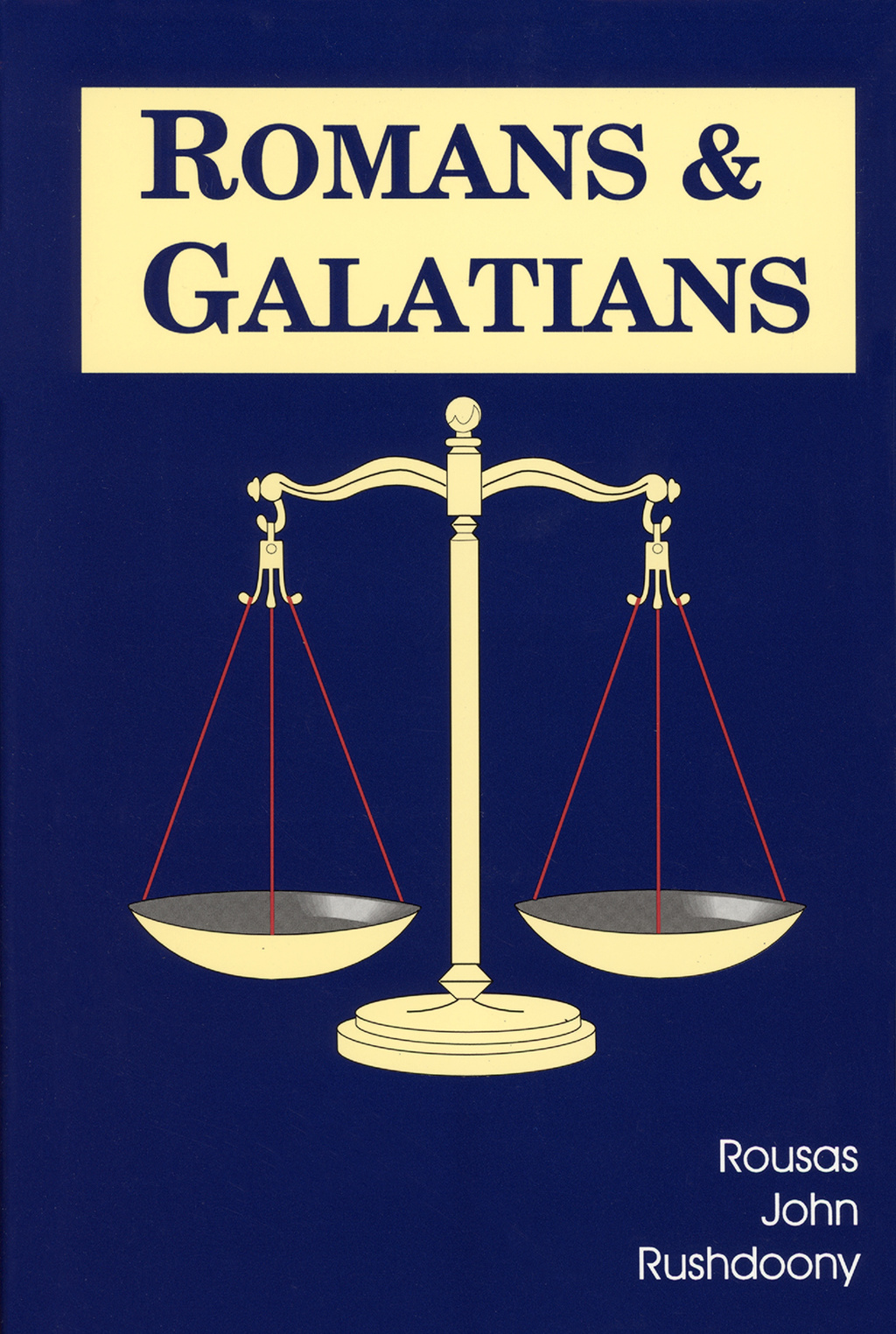
Romans and Galatians
The great problem in the church's interpretation of Scripture has been its ecclesiastical orientation, as though God speaks only to the church, and commands only the church, rather than to the whole man, to every man, and to every area of life and thought
eBook , Hardcover

- R. J. Rushdoony
From the author's introduction: "I do not disagree with the liberating power of the Reformation interpretation, but I believe that it provides simply the beginning of our understanding of Romans, not its conclusion ... The great problem in the church's interpretation of Scripture has been its ecclesiastical orientation, as though God speaks only to the church, and commands only the church. The Lord God speaks in and through His Word to the whole man, to every man, and to every area of life and thought ... To assume that the Triune Creator of all things is in His word and person only relevant to the church is to deny His Lordship or sovereignty. If we turn loose the whole Word of God onto the church and the world, we shall see with joy its power and glory. This is the purpose of my brief comments on Romans."

- R. J. Rushdoony
Rev. R.J. Rushdoony (1916–2001), was a leading theologian, church/state expert, and author of numerous works on the application of Biblical law to society. He started the Chalcedon Foundation in 1965. His Institutes of Biblical Law (1973) began the contemporary theonomy movement which posits the validity of Biblical law as God’s standard of obedience for all. He therefore saw God’s law as the basis of the modern Christian response to the cultural decline, one he attributed to the church’s false view of God’s law being opposed to His grace. This broad Christian response he described as “Christian Reconstruction.” He is credited with igniting the modern Christian school and homeschooling movements in the mid to late 20th century. He also traveled extensively lecturing and serving as an expert witness in numerous court cases regarding religious liberty. Many ministry and educational efforts that continue today, took their philosophical and Biblical roots from his lectures and books.